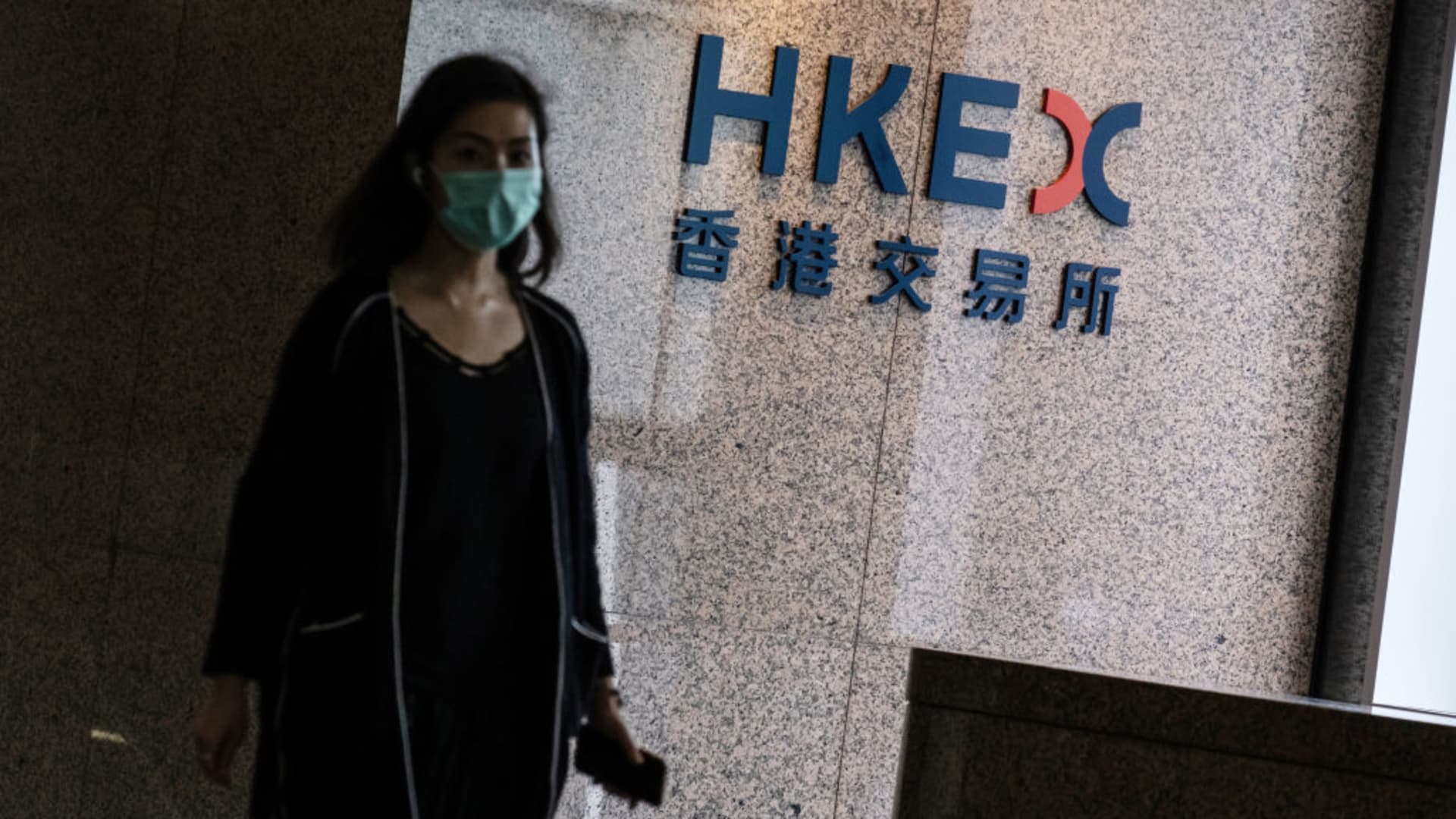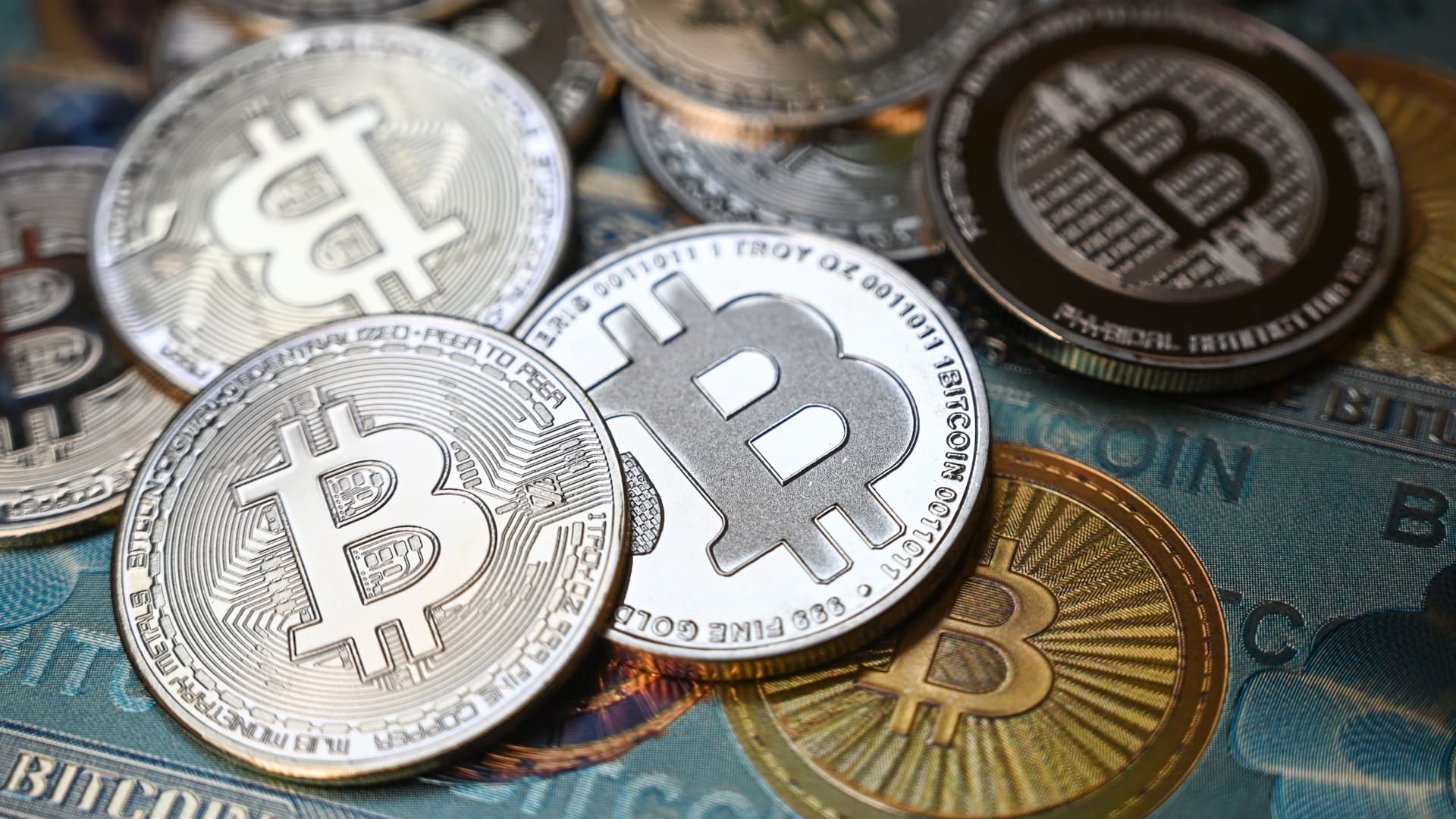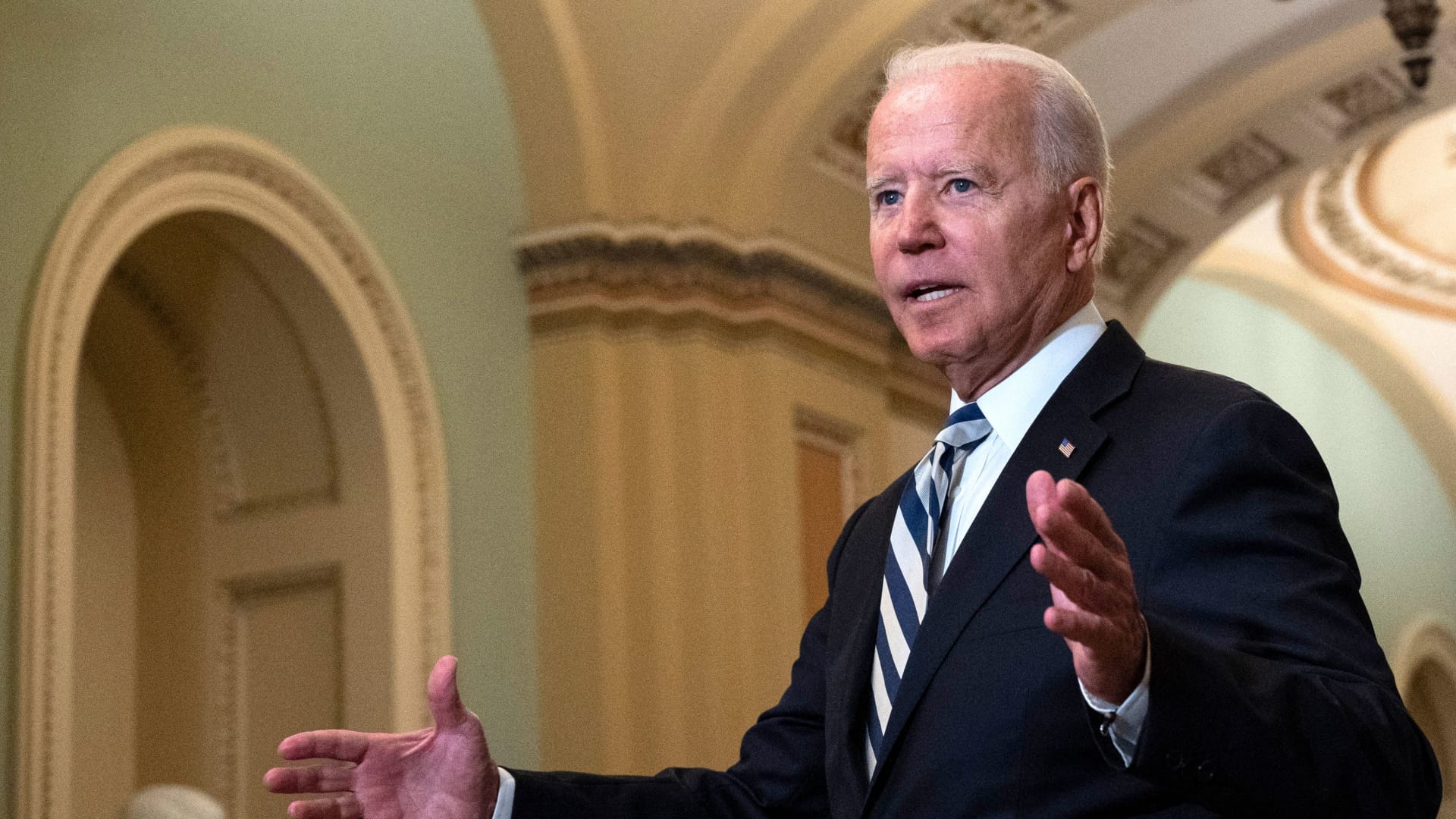Here are the most important news, trends and analysis that investors need to start their trading day:
- Dow futures cut sharp overnight losses after Friday's records
- Stocks in Asia tank on Chinese regulatory concerns, U.S. talks
- Bitcoin trades as high as nearly $40,000 to a six-week high
- Delta variant drives Covid case spike in all 50 states and D.C.
- Senators says they're close a bipartisan infrastructure deal
1. Dow futures cut sharp overnight losses after Friday's records
Get Philly local news, weather forecasts, sports and entertainment stories to your inbox. Sign up for NBC Philadelphia newsletters.
Dow futures dropped modestly Monday, cutting much of the overnight losses of almost 300 points, as stocks in Hong Kong and China plunged on concern about Chinese government crackdowns in the education and property sectors.
Ahead of a big week for tech stocks on Wall Street, the Dow Jones Industrial Average closed above 35,000 on Friday for the first time. Four straight days of gains more than wiped out last Monday's more than 2% tumble as elevated worries about spiking Covid cases due to the delta variant briefly hit the market. The S&P 500 and Nasdaq also closed at record highs Friday.
The Fed's two-day July meeting is set to begin Tuesday. Investors will be looking for signals on when central bankers might start tightening monetary policy and how they're feeling about rising inflation. The 10-year Treasury yield ticked lower Monday to around 1.25%. The yield, which moves inversely to price, hit a 5½-month low of nearly 1.13% last week.
Money Report
2. Stocks in Asia tank on Chinese regulatory concerns, U.S. talks

Hong Kong's Hang Seng stock index tanked more than 4% overnight. Mainland Chinese shares also plummeted, with the Shanghai composite and Shenzhen component each down over 2%.
Many Chinese education stocks, with listings in Hong Kong and in the U.S., lost about half their value after Beijing announced Friday new rules barring for-profit tutoring in core school subjects to ease financial pressures on families. Chinese regulators on Friday also took steps to clean up irregularities in the property market.
Adding to the uncertainty, a meeting of high-level Chinese and U.S. officials got off to a rocky start. During talks Monday with U.S. Deputy Secretary of State Wendy Sherman, Chinese Vice Foreign Minister Xie Feng said ties between the two nations were at a "stalemate" and urged America to "change its highly misguided mindset."
3. Bitcoin trades as high as nearly $40,000 to a six-week high

Bitcoin surged Monday to its highest level since mid-June, flirting at $40,000 before pulling back to below $39,000. Traders were hoping that last week's positive comments by cryptocurrency enthusiasts, including Tesla CEO Elon Musk and Twitter CEO Jack Dorsey, would put bitcoin back on track. Bitcoin reached an all-time high of almost $65,000 in mid-April. On June 22, bitcoin briefly went negative for the year, sinking below $29,000. Inventors will see how bitcoin's wild ride may impact Tesla's quarterly results. Musk's Tesla, which owns the crypto on its company balance sheet, is set to report earnings after Monday's closing bell.
4. Delta variant drives Covid case spike in all 50 states and D.C.

Covid cases are on the rise in all 50 states and the District of Columbia as the delta variant rapidly spreads across the U.S. Cases hit a 15-month low in late June before infections started to rise. Vaccination rates peaked in April and dropped off considerably in recent months. White House chief medical advisor Dr. Anthony Fauci said Sunday that Americans with compromised immune systems may end up needing Covid vaccine booster shots. Fauci told CNN that health officials are considering whether to revise mask guidance for vaccinated people in the U.S.
5. Senators says they're close a bipartisan infrastructure deal

Senators are racing to seal a bipartisan infrastructure deal as soon as Monday, as pressure mounted on all sides to show progress on President Joe Biden's top priority. The lead Republican negotiator, Sen. Rob Portman of Ohio, said the two sides were "about 90% of the way there" on an agreement. A top Democrat, Sen. Mark Warner of Virginia, said he was hopeful a final bill would be ready Monday afternoon. The White House wants a bipartisan agreement for this first phase of infrastructure. But as talks drag on, anxious Democrats, who have slim control of the House and Senate, could leave Republicans behind and try to go it alone.
— Reuters and The Associated Press contributed to this report. Follow all the market action like a pro on CNBC Pro. Get the latest on the pandemic with CNBC's coronavirus coverage.






